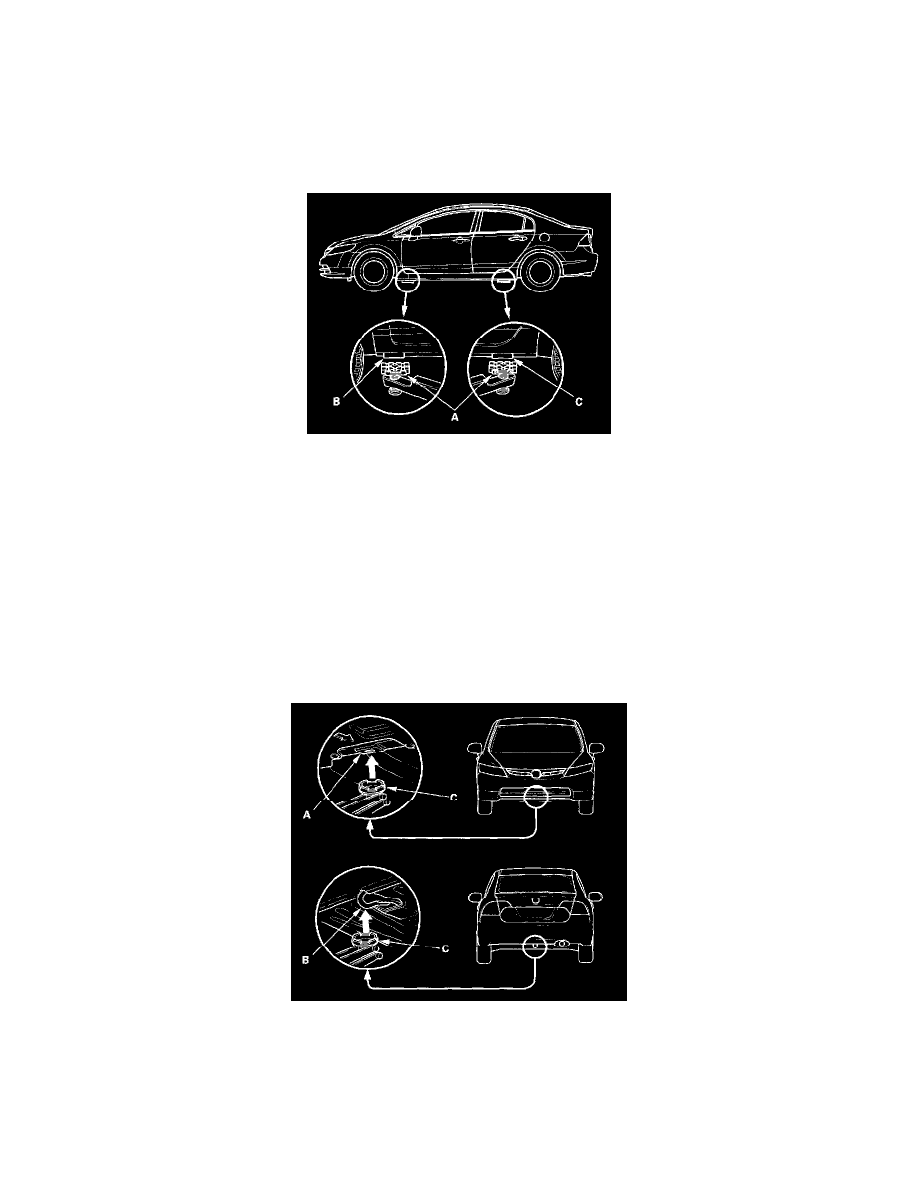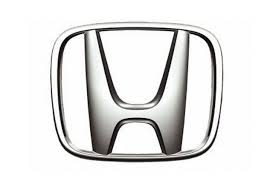Civic L4-1.8L (2006)

Vehicle Lifting: Service and Repair
Lift and Support Points
NOTE: If you are going to remove heavy components such as the suspension or the fuel tank from the rear of the vehicle, first support the front of the
vehicle with tall safety stands. When substantial weight is removed from the rear of the vehicle, the center of gravity can change and cause the vehicle to
tip forward on the hoist.
Frame Hoist
1. Position the hoist lift blocks (A), on safety stands, under the vehicle's front support points (B) and rear support points (C).
2. Raise the hoist a few inches, and rock the vehicle gently to be sure it is firmly supported.
3. Raise the hoist to full height, and inspect the lift points for solid contact with the lift blocks.
Safety Stands
To support the vehicle on safety stands, use the same support points (B and C) as for a frame hoist. Always use safety stands when working on or under
any vehicle that is supported only by a jack.
Floor Jack
1. When lifting the front of the vehicle, set the parking brake. When lifting the rear of the vehicle, put the shift lever in reverse for manual
transmission, or in the P position for automatic transmission.
2. Block the wheels that are not being lifted.
3. Position the floor jack under the front jacking bracket (A) or rear jacking bracket (B). Center the jacking bracket in the jack lift platform (C), and
jack up the vehicle high enough to fit the safety stands under it.
4. Position the safety stands under the support points and adjust them so the vehicle is level.
5. Lower the vehicle onto the stands.
